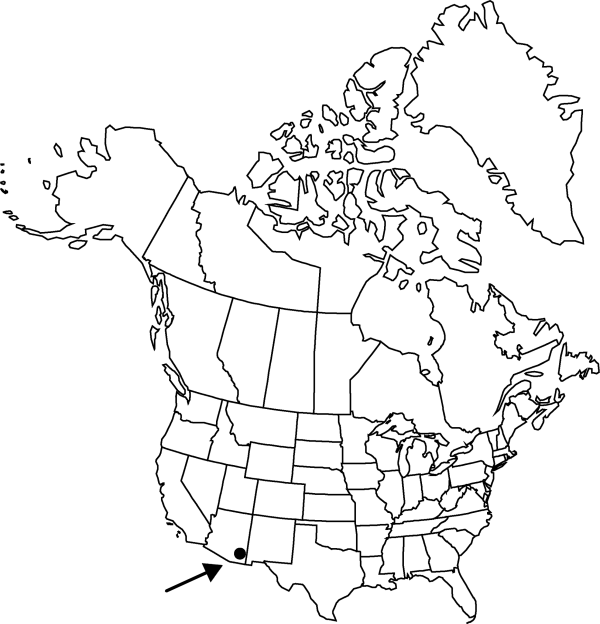Echinocereus ledingii
Cact. Succ. J. (Los Angeles) 8: 35, figs. 1936.
Plants 4–15-branched, forming rather open clumps. Stems erect, cylindric, 15–50 × 6–8 cm; ribs 12–14 (–16), crests slightly undulate; areoles 15–25 mm apart. Spines 10–16 per areole, mostly straight or central spines strongly curving down near base; radial spines 9–11 per areole, pale to golden yellow, aging darker colored or black, 12–15 mm; central spines 1 (–5) per areole, all yellow or whitish, terete, 20–25 mm. Flowers 5–6 × 5–6 cm; flower tube 15–20 × 15–25 mm; flower tube hairs 2 mm; inner tepals magenta to rose-pink, darker proximally, 30 × 5–12 mm, tips relatively thin and delicate; anthers yellow; nectar chamber 5–8 mm. Fruits green, sometimes tinged reddish to brownish, 20–30 mm, pulp white. 2n = 22.
Phenology: Flowering May–Jun; fruiting 3 1/2 months after flowering.
Habitat: Rocky mountainsides, interior chaparral, oak woodland, igneous substrates
Elevation: 1200-2000 m
Discussion
More than half of the localities formerly attributed to Echinocereus ledingii (H. Bravo-H. and H. Sánchez-M. 1998–1991, vol. 3; L. D. Benson 1969) are undocumented and highly suspect. The decurved or deflexed central spines, supposedly diagnostic for this rare species, are misleadingly duplicated in many individuals of E. coccineus and E. arizonicus, and only the latter two species have been found in most of the mountain ranges mapped by A. A. Nichol for L. D. Benson. Echinocereus ledingii is found in the Graham (Pinaleño), Santa Theresa, and Chiricahua mountains.
Selected References
None.
Lower Taxa
"thin" is not a number.
